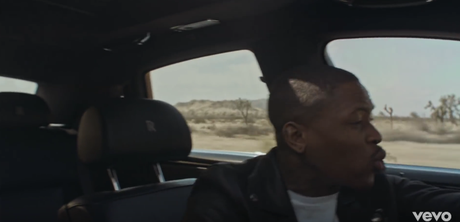
YG in One Time Comin’
In 2012, 17-year-old Trayvon Martin was shot by neighborhood watch volunteer George Zimmerman. He was later acquitted of the crime. Two years later, Eric Garner was killed after being placed in a chokehold by police officers, and Michael Brown had been shot to death by a white police officer in Missouri just a month later. Their deaths, along with far too many others, did not represent a new phenomenon, but did awaken a newly powerful, social media-based iteration of a movement for justice: Black Lives Matter.
At least 263 African-Americans in the US died due to police brutality in 2016 alone. The number seems to only grow, and this fact hasn’t gone unnoticed by the media. Over the past two years, Twitter has been inundated with hashtags created to demand answers and justice for the deaths of individuals like Sandra Bland, Tony Robinson, Freddie Grey, and more. Activists have also taken their support for Black Lives Matter to the streets, participating in protests and riots across the country. Yet despite these impressive and important efforts, almost every officer involved in a police brutality case has been cleared of charges by grand juries.
While justice may not have been achieved in the court, activists are hardly giving up — and that includes celebrity supporters. Kendrick Lamar, Kanye West, and Beyoncé are just some of the many public figures who have not only openly presented themselves as advocates of the movement, but at some point or another have also embedded the importance of the campaign in their work. One of the more recent high-profile advocates of the movement to produce a piece highlighting police brutality among people of color is rapper, YG.
The issue of police brutality is central to YG’s recent, politically-charged song ‘One Time Comin.’ “You think you hard with your badge, huh?” YG raps. “Pop you a n*gga, then you laugh, huh? Think our life don’t matter?” In the song’s music video, YG is seen repeatedly physically running and driving away from the police — actions depicted primarily from the rapper’s perspective.
Perhaps one of the most notable aspects of the video, though, is its subtle yet powerful commentary on the body camera debate. Since the shooting of Paul O’Neal in August this year, there has been amplified debate about what incidents must be filmed by body cameras on police officers in the U.S. This conversations is, in no small part, a response to debate over whether or not these cameras are actually filming even when on officers — in most cases, it turns out, they aren’t. This problematic reality is represented in the video in that the viewer sees the officer’s body camera working perfectly until the end of the video, when it incidentally stops working just before the sound of a gunshot.
YG also targets the more general issue of racial profiling in the video. Many believe that victims like Philando Castile, Sandra Bland, and countless others who were initially pulled over for a supposed “vehicle offense” (like something as insignificant as a broken tail light or an improper lane change) were actually pulled over for no other reason than their skin color. And they have a right to believe this: A 2015 report revealed that black people accounted for over 42% of all non-consent searches following stop — though, ironically, of all people searched without consent, black and Hispanic people actually had the lowest ‘hit rate.’ YG targets this issue in the video when he drives away from multiple police cars, who are apparently trying to pull him over for no reason.
The video ends with a powerful message: “Our condolences go out to all the families who have lost innocent 1s to police brutality. Rest in paradise.”
Perhaps if celebrities like YG and Beyoncé continue to keep the movement relevant in their work, we will start to see progress. But we’re a long, long way off. Innocent people are still being murdered, and police officers are still not being charged for their murders. When it comes down to it, we shouldn’t have to make any more hashtags or music videos demanding justice. But until this justice is a reality, we must persevere in the ways we know how, and show support for those doing this work.

